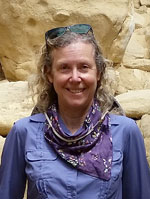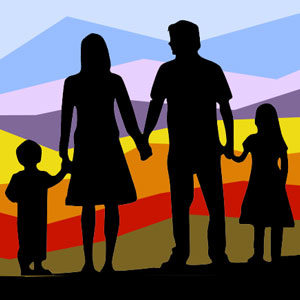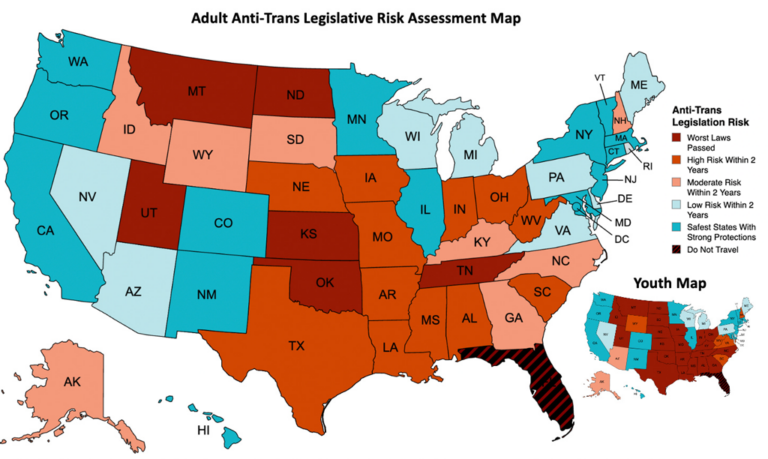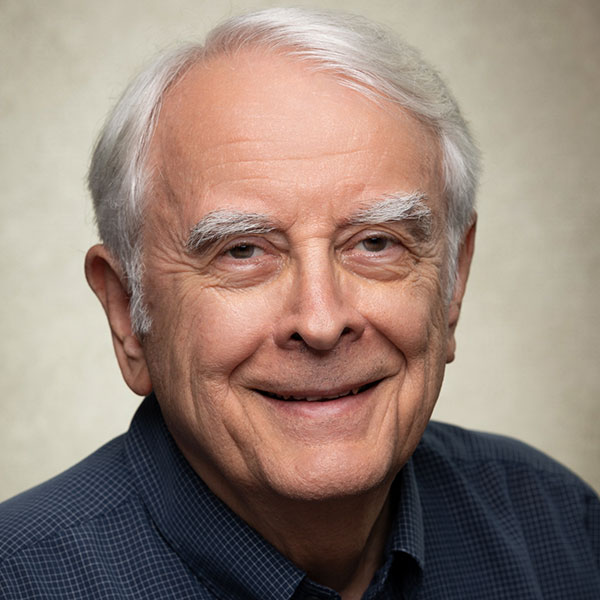Toddlers and Tears on the Texas Border

his column begins with special thanks and recognition of our outgoing President Dr. Derek Alderman, and outgoing Past President Dr. Glen MacDonald. Please join me in recognizing their leadership in moving the association forward on so many important fronts, ranging from civil rights to environmental security. We must carry this momentum forward from the strong foundations they established, and I am honored to take up the baton as your new AAG president. I offer many thanks to the AAG staff, and to current and outgoing council members, as well for their hard work on difficult issues, and welcome new AAG officers, councilors and committee members. It takes dedicated volunteers to make our association a community that makes a difference, and I thank all of you for serving, especially our first cohort of AAG Fellows. Finally, I ask us to thank and recognize the dedicated work and many accomplishments of AAG Executive Director Dr. Douglas Richardson, who announced his countdown to retirement at the New Orleans AAG meetings. There is much work to do to ensure a smooth transition and AAG’s continued positive trajectory, contributions, and influence. In my first presidential column, I address a matter of human rights and global understanding, to which geographers have much to contribute.
I began writing this column in the back country of the Petén, Guatemala, having journeyed by bus and 4WD pickup truck through lively Guatemalan towns and villages, on muddy track roads to the field camp of El Zotz. In Belize the week before, and also at El Zotz, our team was field validating some of the latest findings in airborne LiDAR mapping: fabulous stone structures, temples, settlements, waterworks, and agricultural features of the ancient Maya Civilization, more numerous than ever imagined. Our research questions are about resilience and collapse, long-term environmental change, and about population, landesque capital, technology, agriculture, and sustainability, all in a changing and challenging environment. Meanwhile, on our way from the modern world to this ancient world emerging from the Petén jungle, we passed a busy market square where, since my last visit, motorized tuk tuks spewing exhaust have replaced three wheeled bicycles for local transport on narrow streets. As the day turned to dusk and then into night on our journey towards field camp, glimpses of modern Central American life continued to pass by, people gathered for discussions and cold drinks in LED-lit tiendas, in church halls softly illuminated by candlelight and song, and families cooking dinner at home, some over smoky cookfires in outdoor kitchens, together with their children. Which family will have enough to eat? Enough clean water? Mosquito nets? Pencils and notebooks for school? And, which child could be the next Sally Ride? The next Albert Einstein? So much potential, and so much poverty. How do we extend the opportunities we Americans have to the next generation, and across borders, to understand and move our global society and environment forward, together?

After our field research ended, I took another bumpy, muddy, and dusty truck ride out of El Zotz, and a bus from Flores, Guatemala to Belize to fly home to Austin, Texas, with no trouble crossing the borders and no visa required. I recall an earlier Belize-Mexico border crossing and the Mexican Green Guardians who kindly helped us with a flat tire; and recall the many kindnesses our Central American hosts have bestowed over the years. Back home in Texas, a dead-serious drama is currently playing out on the border of my adopted home state as I continue this column for the publication deadline. Central American families seeking asylum from deplorable conditions, threats, and abuses, and seeking better lives for their children, are being arrested under a U.S. government zero-tolerance policy for illegally crossing the U.S.-Mexico border. Children, some too young to even write or know their parents’ formal names, are being separated from their mothers and fathers and placed into caged warehouses, with no clear reunification plan. Those families have names and dreams, and they have deep care for and hope for their children. I have seen the hope and optimism with which parents escort their children to school in small villages in Mexico. Are former big box store warehouses the best America can offer to our tired, poor, and huddled masses? America offered far more to my immigrant Czech great-grandparents. But our American tolerance and generosity seem to come in waves: despite the welcome my Czech family received in California, WWII saw internment camps arise and imprison their Japanese-American neighbors. How can 21st century America slip so easily back into an “us vs. them” mindset? Not all hope is lost, airlines and local governments are beginning to publicly resist complicity in related federal actions. As of press time, the U.S. President has signed an executive order, after repeatedly blaming others and denying the ability to do so, to suspend the family separation orders for families arrested crossing the border. This order solves few problems, because there is no clear plan in place for the thousands of children who remain separated from their parents. As Glen MacDonald’s past president’s address called us to action on the environment, and Past President Derek Alderman called us to action on civil rights, I call us to action now on human rights, which encompasses both, and takes positive steps towards solving long term environmental and social crises driving migrants from their homes.
Make a Difference with a Focus on Human Rights
This leads us to one of the major themes for my presidential year, and that is Science, Geography and Human Rights. We too, the American Association of Geographers, are 12,000 individuals who can, will, and do make a difference. Under the bold leadership of outgoing President Derek Alderman, we have strengthened our commitment to civil rights, to saying no to bullying, violence, harassment and discrimination. Under the inspiring leadership of Past President Dr. Glen MacDonald, we have recommitted ourselves to protecting and cherishing science and our environment, culminating in his tour de force 2018 past presidential address calling us to action on the grand challenges of climate change and environmental degradation. I call upon us now to broaden our scope to human rights, where on the world stage science, society and the environment can all benefit from the expertise and unique global and spatial perspectives that geographers bring to bear. It is the moment where “we, too” can change the world.
A specific area for geographers to take action is within the AAAS Science and Human Rights Coalition, by becoming involved as an independent scholar. AAG, under the leadership of Executive Director Doug Richardson, was a founding member organization for this coalition in 2009, and has participated ever since on multiple projects, working groups and biannual meetings on a variety of human rights themes. A quick way to become involved is through the AAAS On-call Scientists, to target assistance where it is needed the most, by sharing your respective regional and systematic expertise in geography. Many universities may also have human rights and law centers seeking volunteers or affiliates. Imagine 12,000 geographers working together to solve the most difficult global challenges.
Recognize Those Who Make a Difference, and Stay Involved
I close this column with a reminder that there are numerous committees and awards for which to nominate AAG Members. Please honor those who work hard to make a difference by nominating someone today. Also, begin plans for your active participation in sessions, papers, posters, and field trips at the AAG Annual Meeting in Washington D.C. April 3-7, 2019. The AAG meeting themes for 2019 will include Geography Science and Human Rights, among others including Geography, Sustainability, and GIScience. Let’s make this our biggest annual meeting yet: we look forward to seeing you in Washington, D.C. Come home to Meridian Place!
Please share your ideas with me via email: slbeach [at] austin [dot] utexas [dot] edu
— Sheryl Luzzadder-Beach
Professor and Chair, Geography and the Environment, The University of Texas at Austin
President, American Association of Geographers
DOI: 10.14433/2017.0037


